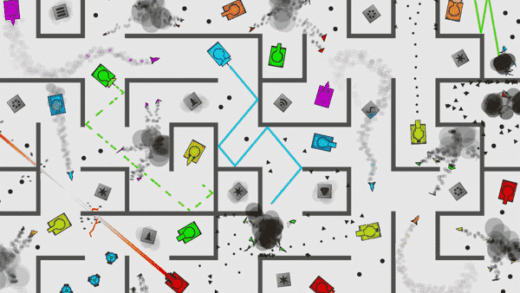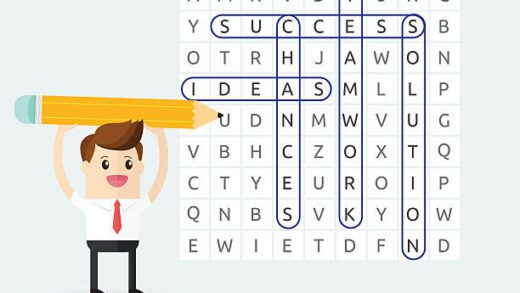In a world filled with digital distractions, puzzle board games for kids remain one of the best tools to promote deep thinking, focus, and cognitive growth.
These games are more than just entertaining—they’re powerful learning tools that improve memory, problem-solving, and logical reasoning in a way that screens often can’t replicate.
If you’re looking for screen-free, enriching activities, introducing puzzle board games for kids is a smart and fun choice. Let’s explore why these games matter and which ones are worth trying.
Why Puzzle Board Games Are Essential for Kids’ Development
Board games that involve puzzles and strategy have been linked to cognitive development in numerous educational studies. These games stimulate areas of the brain associated with memory retention, pattern recognition, and decision-making.
When children play logic board games, they are encouraged to:
- Analyze and solve complex challenges
- Think ahead and plan strategically
- Improve concentration and patience
- Strengthen communication when playing with others
Puzzle board games also support emotional growth by teaching resilience, especially when kids experience losing or making a mistake. This builds grit and a healthy approach to competition and learning.
Top Puzzle Board Games for Kids That Promote Brain Development
Here are some of the most recommended cognitive development games for children that offer fun and learning rolled into one:
1. Rush Hour by ThinkFun (Ages 8+)
This solo game teaches logical thinking and sequencing. Kids work to free a car from a traffic jam by sliding other vehicles in a grid. With 40 challenge cards of increasing difficulty, it’s an excellent way to encourage focused thinking.
2. Gravity Maze by ThinkFun (Ages 8+)
Part puzzle, part marble run, this STEM game challenges kids to build a structure that will guide a marble to a target. It’s a favorite for enhancing spatial reasoning and problem-solving.
3. Outfoxed! (Ages 5+)
This cooperative mystery game introduces deduction skills in a kid-friendly way. Players gather clues to find out which fox stole the pie before the culprit escapes. It promotes teamwork and strategic thinking.
4. Robot Turtles (Ages 4+)
Designed to teach the basics of coding through fun gameplay, this game uses puzzle cards to encourage logical thinking and sequencing in young children.
5. Castle Logix (Ages 3–8)
Perfect for younger children, this wooden puzzle board game combines logic and spatial awareness as kids try to build castles using various blocks and towers to match illustrated challenges.
Real-Life Benefits of Logic Board Games
Playing puzzle board games for kids goes beyond the table. These games help children in real-world situations like:
- Problem-solving in school (e.g., tackling math or reading comprehension challenges)
- Improving focus and self-regulation
- Working collaboratively with peers
- Building confidence by overcoming challenging scenarios
They also reduce screen time, offer a calm family bonding activity, and make learning feel like play.
Tips for Choosing the Right Game
- Match age and ability: Choose games suited to your child’s current cognitive level. Too easy, and they’ll get bored; too hard, and they might feel frustrated.
- Look for replay value: Games with varying levels of difficulty or multiple play modes offer more long-term engagement.
- Check for educational value: Not all games labeled as “puzzles” offer true logic or cognitive benefits. Look for games that challenge pattern recognition, sequencing, deduction, and strategy.
Recommendation
Best Puzzle Games for 5-Year-Olds That Make Learning Fun
Brain-Boosting Puzzle Games for 6-Year-Olds: USA 2025 Picks
Top Puzzle Games for Toddlers: Boost Brain Development in USA Kids
Wordfinderx: Your Secret Weapon for Word Puzzles
8 Games to Improve Memory and Focus in Kids
Final Thoughts
Introducing puzzle board games for kids is one of the most engaging and effective ways to support their mental growth. Whether you’re a parent, teacher, or caregiver, adding logic-based games to your routine can offer both educational value and quality time.
These games help children unlock their full potential—developing the kind of flexible, creative thinking that serves them well throughout life.
So, set aside the screens for a while and pull out a board game. You’ll be amazed at how much your child can learn while having fun!
FAQs
Q1: What age should children start playing puzzle board games?
A1: Kids as young as 3 can begin with simple matching and stacking puzzles. As they grow, introduce more complex games with rules and logic elements.
Q2: Are puzzle board games better than digital games for learning?
A2: While digital games can be educational, board games offer hands-on, tactile experiences that improve fine motor skills, focus, and social interaction.
Q3: How often should kids play logic board games?
A3: A few times a week is ideal. Short, regular sessions help reinforce critical thinking without causing fatigue or boredom.
Q4: Can puzzle board games support children with learning differences?
A4: Yes, Many games can be adapted for children with ADHD, autism, or other learning needs by offering structured, engaging, and repeatable challenges.
Q5: Are cooperative puzzle games better than competitive ones?
A5: Both are valuable. Cooperative games build teamwork and communication, while competitive games promote independent thinking and resilience. A healthy mix of both is best.



